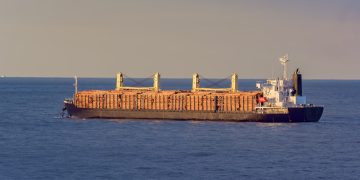One of the most common situations in which a Letter of Indemnity (LOI) might be used is to deliver cargo without presentation of original bills of lading (OBLs), because the bills are not available at the discharge port.
As Jamie L Green, Claims Director, Standard Club, and Revecca Vasiliou, Divisional Claims Director, note, “in shipping, in the interest of expedience, a shipper or charterer might request a shipowner to undertake additional risks in exchange for an LOI issued by the charterer or the shipper.”
What is more, the International Group of P&I Clubs (IG) has launched a series of standard form LOIs, including the ‘Group A’ LOI form, which regards delivery absent OBLs. It provides as follows:
The above cargo was shipped on the above ship by [insert name of shipper] and consigned to [insert name of consignee or party to whose order the bill of lading is made out, as appropriate] for delivery at the port of [insert name of discharge port stated in the bill of lading] but the bill of lading has not arrived and we, [insert name of party requesting delivery], hereby request you to deliver the said cargo to “X [name of the specific party] or to such party as you believe to be or to represent X or to be acting on behalf of X” at [insert place where delivery is to be made] without production of the original bill of lading
According to this wording, the indemnity can be launched if the LOI recipient:
- Delivers the cargo to Party X or a party representing or acting on behalf of Party X;
- Delivers the cargo to such party he believes to be Party X;
- Delivers the cargo to such party as he believes to represent or be acting on behalf of Party X.
However, there could be issues with LOI usage, as their use often exposes the recipient to additional risks. Mr. Green and Ms. Vasiliou highlight that the issues could be the following:
1. Risk of claims
When delivering cargo without the presentation of OBLs, the shipowner can be exposed to greater risk of delivering the cargo to a party who may well not have title to the goods.
If such a misdelivery occurs, the party with rightful title to the goods may assert a claim against the owner for the whole value of the misdelivered cargo including by arrest of the ship
Standard Club notes.
2. Prejudicial effect on P&I cover
If cargo is delivered without presentation of a negotiable document of title such as the OBL, club cover could be compromised and no longer automatically available, regardless of whether the member has obtained an LOI or bank guarantee.
3. Enforcement
Furthermore, currently there are at least four reasons why a shipowner might face difficulties when seeking to enforce an LOI:
- The LOI issuer does not have the financial means to ’make good’ on the LOI or has since become insolvent;
- The shipowner has not effected delivery of the cargo in a manner strictly compliant with the wording set out in the LOI;
- The claims under the LOI have become time-barred;
- A court refuses to enforce the LOI on grounds of illegality/public policy considerations.
Taking all of the above into consideration, Mr. Green and Ms. Vasiliou explain that LOIs are an important feature in the of international trade. As they mention, used properly, they can protect a shipowner from being asked to perform operations which could potentially prejudice its P&I cover. More specifically, they state that:
Members would do well to remember that the use of LOIs potentially exposes the recipient to substantial additional risks and can raise complex issues of law. Due consideration and diligence must be given to the precise wording and scope of the LOI that is being negotiated. An owner who fails to do this runs the risk that the LOI may fail to be legally or practically enforceable when most needed
Finally, care should also be taken to comply with the precise wording of the request made by the LOI issuer in an individual LOI.

































































